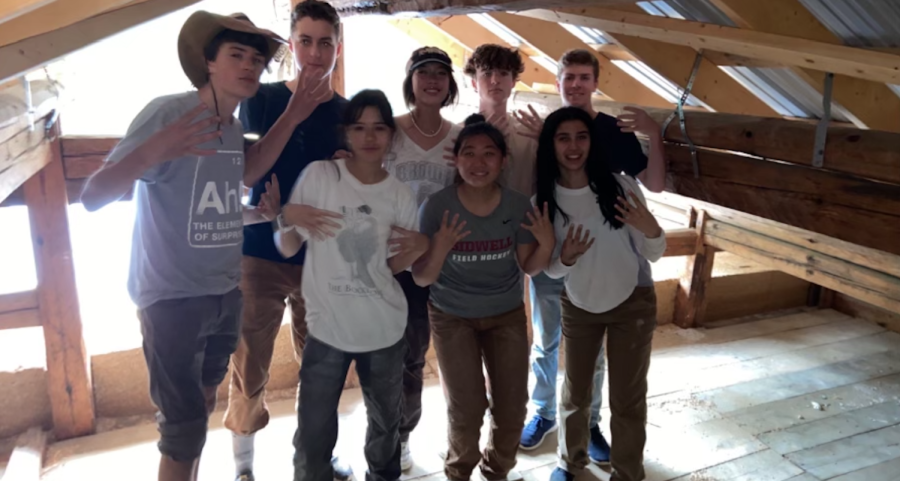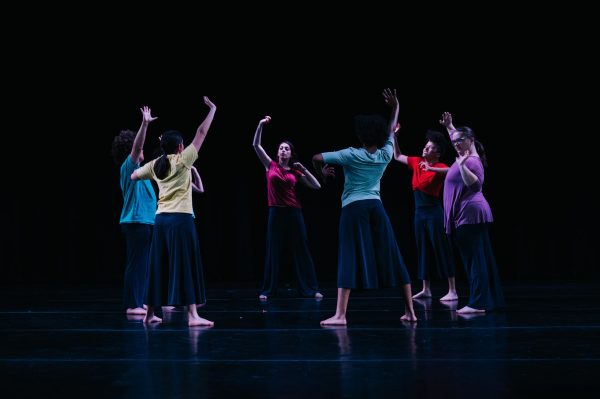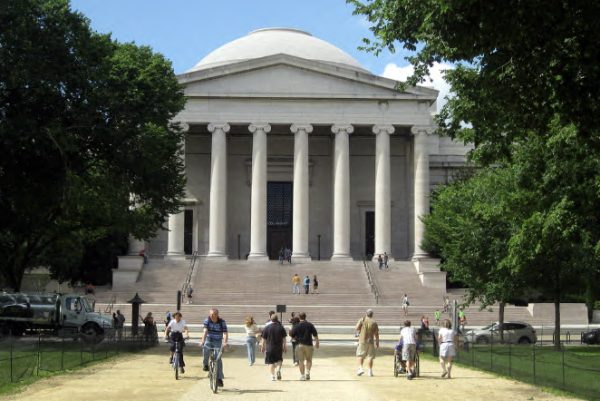China Folk House Program Teaches Students About Chinese Language and Culture
Sidwell’s China Folk House began in 2017 when Director of Chinese Studies John Flower arranged to transport a traditional Chinese house, due to be demolished in 2018, from Cizhong Village in Yunnan Province, China to West Virginia.
The first summer program, called Camp Wholesome, started in 2019, only two years after the dismantling of the house took place. In the first few summer programs, construction of the China Folk House began with compacting dirt for the walls. However, the dirt did not comply with building codes, so Flower and the rest of the team decided to transition to hempcrete, a building material that uses hemp, water, aggregate and binder to act as walls, insulation or finishing.
As a result, the building is environmentally friendly, as hempcrete is carbon negative, meaning that it absorbs more carbon from the atmosphere than it emits in the manufacturing process.
In the past few years, volunteers have constructed a Tibetan kitchen, a bathhouse and an ethnobotanical garden surrounding the house. Many of these volunteers were Sidwell students who joined Camp Wholesome. The program is currently working on constructing a bunkhouse, which will be able to accommodate 24 volunteers.
On a typical camp day, the morning starts with announcements, and then volunteers are divided into teams, such as bricklaying crew, hempcrete crew, garden crew and other groups, described senior Melinda Daniels-Tineo, a Counselor-in-Training at Camp Wholesome and a volunteer since 2021.
The camp’s success has been attributed to the fact that “all of the students really put their hearts into the building of the house,” said junior Myles King, who also participated in Camp Wholesome last summer.
Outside of their work, the volunteers spent free time exploring the woods and the surrounding area, and would end the day with some games or music. Some activities that students participated in included kayaking, hiking and playing sports.
In addition to these activities, Camp Wholesome’s schedule included time to learn about Chinese culture and language. For instance, there were opportunities to cook traditional Chinese or Tibetan dishes, practice tai chi and learn about Chinese and Tibetan kinship practices.
There are a total of six sessions in the upcoming summer program. The first session will be focused on continuing projects on the courtyard and gardens, as well as adding a hempcrete wall to the moongate. In the second to sixth sessions, there will be opportunities for students to learn woodworking and construct bunks.
“A lot more students have signed up for the upcoming summer, including students from other schools,” Daniels-Tineo said.
This summer’s main objective will be to complete the Jianchuan Pavilion with the help of the Jianchuan Craftsmen Cooperative and the West Virginia Timber Framers Guild.
Both Daniels-Tineo and King have deeply savored their time spent at Camp Wholesome, whether it was helping younger volunteers or picking berries in the Shenandoah wilderness.
Camp Wholesome was “a really great experience in understanding more about the culture of China through its architecture, and I also learned important carpentry skills while having lots of fun,” King said.














































